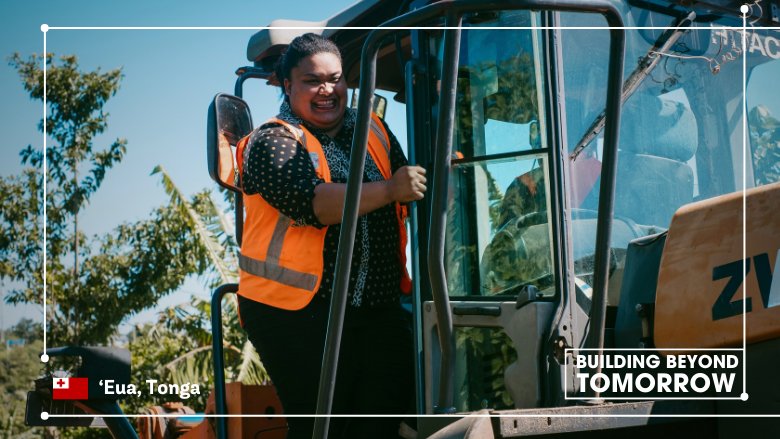In the past five years, Jean Malupo Veilofia, her family, and the ��Eua Island community in the Kingdom of Tonga have experienced significant highs and lows.
A few years ago, her family��s construction business, ��Ahononou & Petani Quarry, was thrilled to be awarded a major World Bank contract to make roads climate-resilient around ��Ohonua village. In the past, these opportunities were won by international contractors, who would fly in and complete the work, then fly out, taking their income and experience with them.
Jean reflects on the shift, ��As I was growing up as a local girl here, I've seen �� international contractors working major projects like this. But as of now, we've been given the opportunity.��
Local contractors like Jean's business keep the benefits within the community, enhancing resilience. ��We're able to spend money here in the community,�� she explains, ��We also shared what we have: the skills, the finances�� hiring local staff members, operators and all that.��
However, challenges soon emerged. The pandemic halted progress, and Jean��s father��s passing in 2021 left her at the company's helm. Despite feeling overwhelmed, she was determined to honor her father��s legacy.
��It's a very big, big opportunity for us on so many levels,�� she says, emphasizing the impact on local people. ��It's not just an opportunity for me and my family, but also an opportunity for other people involved, especially the locals.��
Jean and her team undertook rebuilding 30 kilometers of ��Eua��s critical roads and associated drainage works. But, as a young woman in construction, she also faced additional challenges of working in a male-dominated field.
��What makes me really proud right now is working in a male-dominated sector �� not just that I'm young, I'm a woman,�� she states. ��I'm quite proud, you know �� I'm proud of my team too, we've come so far��And I know if it wasn't for them, I wouldn't be here.��
Now that Jean has overcome those initial hurdles and has stepped into her leadership role, she is focused on helping her broader community, who are facing serious challenges of their own.
Tonga is one of the most disaster-prone countries in the world. In recent years, it has experienced even more extreme weather events than usual, which have impacted the nation��s ability to respond and recover.


